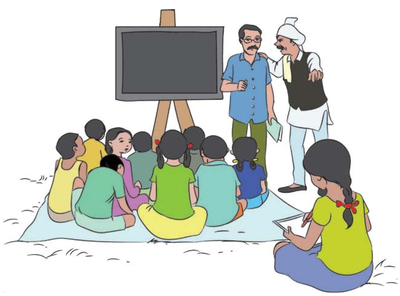Caste discrimination
Caste discrimination
Introduction
Issues like untouchability and casteism are still common in rural areas. The reason for this is the deep rooted traditions of casteism. Not just adults, even children are subjected to this form of discrimination. Be it in the community, schools or even the playground, many children face humiliation because of caste discrimination. There have been instances where during the mid-day Meals served in schools, children of schedule castes have been asked to sit separately and eat; scheduled caste girls have been asked to clean the school toilets; and teachers have asked children belonging to the minority community to sit right at the back in class.

What the law says about caste discrimination
According to article 14 of the Indian constitution, the state shall not deny equality to any person before the law or the equal protection of the laws within the territory of India. Article 15 prohibits the state from discriminating any citizen on ground of any religion, race, caste, sex, place of birth or any of them.
Article 17 states that untouchability is abolished and its practice in any form is forbidden. The ‘Protection of Civil Rights Act, 1955’ was the first Indian law that came into force to provide punishment for the preaching and practice of ‘Untouchability’ and for any mater connected with it. In 1989, the Government of India enacted ‘the Scheduled Castes and Scheduled Tribes (Prevention of Atrocities) Act’, which recognised various kinds of acts of violence and discrimination inflicted upon the Scheduled Castes and the Scheduled Tribes by non-scheduled castes and non-scheduled tribes as punishable offences. It also provides for provision of special courts at the district level to try the offences under this Act.
Role of panchayat members in stopping caste discrimination
Panchayat members should create awareness campaigns on this issue. If there is an issue of caste discrimination against adults or children in the village, the panchayat member should raise this in the Gram Sabha and the accused should be duly punished. Besides aiming for elimination of discrimination based on caste in their village, panchayat members should give equal opportunities to representatives of the minority groups to raise whatever issues they have in the panchayat.
Source : NCPCR Handbook on Safe Childhood Programme for Panchayat members
Last Modified : 7/1/2024
This topic provides information about Sim Card Swa...
This topic deals with information related to Appen...
This topic provides information about 20th Livesto...
This topic deals with information related to Anxie...
